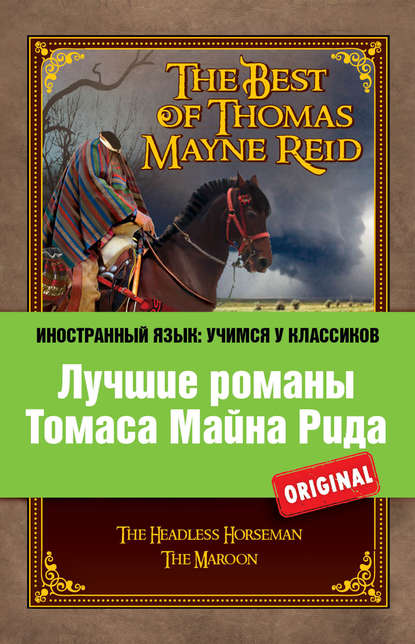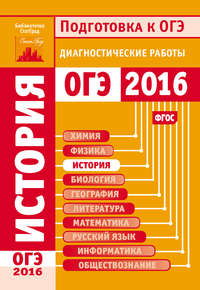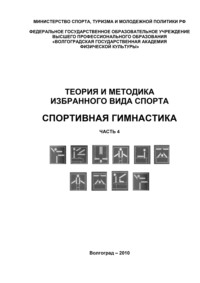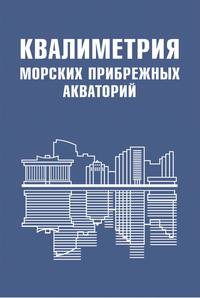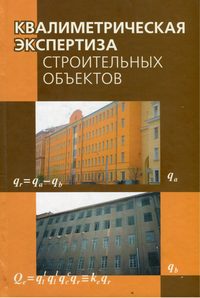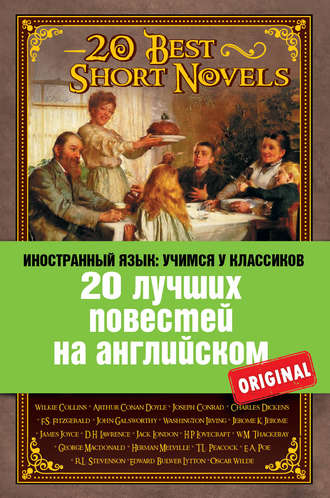
Полная версия
20 лучших повестей на английском / 20 Best Short Novels
‘It killed your dog, – that is fearful! Indeed it is strange that no animal can be induced to stay in that house; not even a cat. Bats and mice are never found in it.’
‘The instincts of the brute creation detect influences deadly to their existence. Man’s reason has a sense less subtle, because it has a resisting power more supreme. But enough; do you comprehend my theory?’
‘Yes, though imperfectly, – and I accept any crotchet[32] (pardon the word), however odd, rather than embrace at once the notion of ghosts and hobgoblins[33] we imbibed in our nurseries. Still, to my unfortunate house, the evil is the same. What on earth can I do with the house?’
‘I will tell you what I would do. I am convinced from my own internal feelings that the small, unfurnished room at right angles to the door of the bed-room which I occupied, forms a starting-point or receptacle for the influences which haunt the house; and I strongly advise you to have the walls opened, the floor removed, – nay, the whole room pulled down. I observe that it is detached from the body of the house, built over the small backyard, and could be removed without injury to the rest of the building.’
‘And you think, if I did that—’
‘You would cut off the telegraph wires. Try it. I am so persuaded that I am right, that I will pay half the expense if you will allow me to direct the operations.’
‘Nay, I am well able to afford the cost; for the rest allow me to write to you.’
About ten days after I received a letter from Mr. J—, telling me that he had visited the house since I had seen him; that he had found the two letters I had described, replaced in the drawer from which I had taken them; that he had read them with misgivings like my own; that he had instituted a cautious inquiry about the woman to whom I rightly conjectured they had been written. It seemed that thirty-six years ago (a year before the date of the letters) she had married, against the wish of her relations, an American of very suspicious character; in fact, he was generally believed to have been a pirate. She herself was the daughter of very respectable tradespeople, and had served in the capacity of a nursery governess before her marriage. She had a brother, a widower, who was considered wealthy, and who had one child of about six years old. A month after the marriage the body of this brother was found in the Thames, near London Bridge; there seemed some marks of violence about his throat, but they were not deemed sufficient to warrant the inquest in any other verdict than that of ‘found drowned.’
The American and his wife took charge of the little boy, the deceased brother having by his will left his sister the guardian of his only child, – and in event of the child’s death the sister inherited. The child died about six months afterwards, – it was supposed to have been neglected and ill-treated. The neighbors deposed to have heard it shriek at night. The surgeon who had examined it after death said that it was emaciated as if from want of nourishment, and the body was covered with livid bruises. It seemed that one winter night the child had sought to escape; crept out into the backyard; tried to scale the wall; fallen back exhausted; and been found at morning on the stones in a dying state. But though there was some evidence of cruelty, there was none of murder; and the aunt and her husband had sought to palliate cruelty by alleging the exceeding stubbornness and perversity of the child, who was declared to be half-witted. Be that as it may, at the orphan’s death the aunt inherited her brother’s fortune. Before the first wedded year was out, the American quitted England abruptly, and never returned to it. He obtained a cruising vessel, which was lost in the Atlantic two years afterwards. The widow was left in affluence, but reverses of various kinds had befallen her: a bank broke; an investment failed; she went into a small business and became insolvent; then she entered into service, sinking lower and lower, from housekeeper down to maid-of-all-work, – never long retaining a place, though nothing decided against her character was ever alleged. She was considered sober, honest, and peculiarly quiet in her ways; still nothing prospered with her. And so she had dropped into the workhouse, from which Mr. J– had taken her, to be placed in charge of the very house which she had rented as mistress in the first year of her wedded life.
Mr. J– added that he had passed an hour alone in the unfurnished room which I had urged him to destroy, and that his impressions of dread while there were so great, though he had neither heard nor seen anything, that he was eager to have the walls bared and the floors removed as I had suggested. He had engaged persons for the work, and would commence any day I would name.
The day was accordingly fixed. I repaired to the haunted house, – we went into the blind, dreary room, took up the skirting, and then the floors. Under the rafters, covered with rubbish, was found a trap-door, quite large enough to admit a man. It was closely nailed down, with clamps and rivets of iron. On removing these we descended into a room below, the existence of which had never been suspected. In this room there had been a window and a flue, but they had been bricked over, evidently for many years. By the help of candles we examined this place; it still retained some mouldering furniture, – three chairs, an oak settle, a table, – all of the fashion of about eighty years ago. There was a chest of drawers against the wall, in which we found, half-rotted away, old-fashioned articles of a man’s dress, such as might have been worn eighty or a hundred years ago by a gentleman of some rank; costly steel buckles and buttons, like those yet worn in court-dresses, a handsome court sword; in a waistcoat which had once been rich with gold-lace, but which was now blackened and foul with damp, we found five guineas, a few silver coins, and an ivory ticket, probably for some place of entertainment long since passed away. But our main discovery was in a kind of iron safe fixed to the wall, the lock of which it cost us much trouble to get picked.
In this safe were three shelves and two small drawers. Ranged on the shelves were several small bottles of crystal, hermetically stopped. They contained colorless, volatile essences, of the nature of which I shall only say that they were not poisons, – phosphor and ammonia entered into some of them. There were also some very curious glass tubes, and a small pointed rod of iron, with a large lump of rock-crystal, and another of amber, – also a loadstone of great power.
In one of the drawers we found a miniature portrait set in gold, and retaining the freshness of its colors most remarkably, considering the length of time it had probably been there. The portrait was that of a man who might be somewhat advanced in middle life, perhaps forty-seven or forty-eight. It was a remarkable face, – a most impressive face. If you could fancy some mighty serpent transformed into man, preserving in the human lineaments the old serpent type, you would have a better idea of that countenance than long descriptions can convey: the width and flatness of frontal; the tapering elegance of contour disguising the strength of the deadly jaw; the long, large, terrible eye, glittering and green as the emerald, – and withal a certain ruthless calm, as if from the consciousness of an immense power.
Mechanically I turned round the miniature to examine the back of it, and on the back was engraved a pentacle[34]; in the middle of the pentacle a ladder, and the third step of the ladder was formed by the date 1765. Examining still more minutely, I detected a spring; this, on being pressed, opened the back of the miniature as a lid. Within-side the lid were engraved, ‘Marianna to thee. Be faithful in life and in death to—.’ Here follows a name that I will not mention, but it was not unfamiliar to me. I had heard it spoken of by old men in my childhood as the name borne by a dazzling charlatan who had made a great sensation in London for a year or so, and had fled the country on the charge of a double murder within his own house, – that of his mistress and his rival. I said nothing of this to Mr. J—, to whom reluctantly I resigned the miniature.
We had found no difficulty in opening the first drawer within the iron safe; we found great difficulty in opening the second: it was not locked, but it resisted all efforts, till we inserted in the chinks the edge of a chisel. When we had thus drawn it forth, we found a very singular apparatus in the nicest order. Upon a small, thin book, or rather tablet, was placed a saucer of crystal; this saucer was filled with a clear liquid, – on that liquid floated a kind of compass, with a needle shifting rapidly round; but instead of the usual points of a compass were seven strange characters, not very unlike those used by astrologers to denote the planets. A peculiar but not strong nor displeasing odor came from this drawer, which was lined with a wood that we afterwards discovered to be hazel. Whatever the cause of this odor, it produced a material effect on the nerves. We all felt it, even the two workmen who were in the room, – a creeping, tingling sensation from the tips of the fingers to the roots of the hair. Impatient to examine the tablet, I removed the saucer. As I did so the needle of the compass went round and round with exceeding swiftness, and I felt a shock that ran through my whole frame, so that I dropped the saucer on the floor. The liquid was spilled; the saucer was broken; the compass rolled to the end of the room, and at that instant the walls shook to and fro, as if a giant had swayed and rocked them.
The two workmen were so frightened that they ran up the ladder by which we had descended from the trapdoor; but seeing that nothing more happened, they were easily induced to return.
Meanwhile I had opened the tablet: it was bound in plain red leather, with a silver clasp; it contained but one sheet of thick vellum[35], and on that sheet were inscribed, within a double pentacle, words in old monkish Latin, which are literally to be translated thus: ‘On all that it can reach within these walls, sentient or inanimate, living or dead, as moves the needle, so work my will! Accursed be the house, and restless be the dwellers therein.’
We found no more. Mr. J– burned the tablet and its anathema[36]. He razed to the foundations the part of the building containing the secret room with the chamber over it. He had then the courage to inhabit the house himself for a month, and a quieter, better-conditioned house could not be found in all London. Subsequently he let it to advantage, and his tenant has made no complaints.
Wilkie Collins
Dream Woman
The First Narrative
Introductory statement of the facts by Percy Fairbank
I
‘Hullo, there! Hostler! Hullo-o-o!’
‘My dear! why don’t you look for the bell?’
‘I have looked – there is no bell.’
‘And nobody in the yard. How very extraordinary! Call again, dear.’
‘Hostler! Hullo, there! Hostler-r-r!’
My second call echoes through empty space, and rouses nobody – produces, in short, no visible result. I am at the end of my resources – I don’t know what to say or what to do next. Here I stand in the solitary inn yard of a strange town, with two horses to hold, and a lady to take care of. By way of adding to my responsibilities, it so happens that one of the horses is dead lame, and that the lady is my wife.
Who am I? – you will ask.
There is plenty of time to answer the question. Nothing happens; and nobody appears to receive us. Let me introduce myself and my wife.
I am Percy Fairbank – English gentleman – age (let us say) forty – no profession – moderate politics – middle height – fair complexion – easy character – plenty of money.
My wife is a French lady. She was Mademoiselle Clotilde Delorge – when I was first presented to her at her father’s house in France. I fell in love with her – I really don’t know why. It might have been because I was perfectly idle, and had nothing else to do at the time. Or it might have been because all my friends said she was the very last woman whom I ought to think of marrying. On the surface, I must own, there is nothing in common between Mrs. Fairbank and me. She is tall; she is dark; she is nervous, excitable, romantic; in all her opinions she proceeds to extremes. What could such a woman see in me? what could I see in her? I know no more than you do. In some mysterious manner we exactly suit each other. We have been man and wife for ten years, and our only regret is, that we have no children. I don’t know what you may think; I call that – upon the whole – a happy marriage.
So much for ourselves. The next question is – what has brought us into the inn yard? and why am I obliged to turn groom, and hold the horses?
We live for the most part in France – at the country house in which my wife and I first met. Occasionally, by way of variety, we pay visits to my friends in England. We are paying one of those visits now. Our host is an old college friend of mine, possessed of a fine estate in Somersetshire[37]; and we have arrived at his house – called Farleigh Hall – toward the close of the hunting season.
On the day of which I am now writing – destined to be a memorable day in our calendar – the hounds meet at Farleigh Hall. Mrs. Fairbank and I are mounted on two of the best horses in my friend’s stables. We are quite unworthy of that distinction; for we know nothing and care nothing about hunting. On the other hand, we delight in riding, and we enjoy the breezy spring morning and the fair and fertile English landscape surrounding us on every side. While the hunt prospers, we follow the hunt. But when a check occurs – when time passes and patience is sorely tried; when the bewildered dogs run hither and thither, and strong language falls from the lips of exasperated sportsmen – we fail to take any further interest in the proceedings. We turn our horses’ heads in the direction of a grassy lane, delightfully shaded by trees. We trot merrily along the lane, and find ourselves on an open common. We gallop across the common, and follow the windings of a second lane. We cross a brook, we pass through a village, we emerge into pastoral solitude among the hills. The horses toss their heads, and neigh to each other, and enjoy it as much as we do. The hunt is forgotten. We are as happy as a couple of children; we are actually singing a French song – when in one moment our merriment comes to an end. My wife’s horse sets one of his forefeet on a loose stone, and stumbles. His rider’s ready hand saves him from falling. But, at the first attempt he makes to go on, the sad truth shows itself – a tendon is strained; the horse is lame.
What is to be done? We are strangers in a lonely part of the country. Look where we may, we see no signs of a human habitation. There is nothing for it but to take the bridle road up the hill, and try what we can discover on the other side. I transfer the saddles, and mount my wife on my own horse. He is not used to carry a lady; he misses the familiar pressure of a man’s legs on either side of him; he fidgets, and starts, and kicks up the dust. I follow on foot, at a respectful distance from his heels, leading the lame horse. Is there a more miserable object on the face of creation than a lame horse? I have seen lame men and lame dogs who were cheerful creatures; but I never yet saw a lame horse who didn’t look heartbroken over his own misfortune.
For half an hour my wife capers and curvets sideways along the bridle road. I trudge on behind her; and the heartbroken horse halts behind me. Hard by the top of the hill, our melancholy procession passes a Somersetshire peasant at work in a field. I summon the man to approach us; and the man looks at me stolidly, from the middle of the field, without stirring a step. I ask at the top of my voice how far it is to Farleigh Hall. The Somersetshire peasant answers at the top of his voice:
‘Vourteen mile. Gi’ oi a drap o’ zyder.’
I translate (for my wife’s benefit) from the Somersetshire language into the English language. We are fourteen miles from Farleigh Hall; and our friend in the field desires to be rewarded, for giving us that information, with a drop of cider. There is the peasant, painted by himself! Quite a bit of character, my dear! Quite a bit of character!
Mrs. Fairbank doesn’t view the study of agricultural human nature with my relish. Her fidgety horse will not allow her a moment’s repose; she is beginning to lose her temper.
‘We can’t go fourteen miles in this way,’ she says. ‘Where is the nearest inn? Ask that brute in the field!’
I take a shilling from my pocket and hold it up in the sun. The shilling exercises magnetic virtues. The shilling draws the peasant slowly toward me from the middle of the field. I inform him that we want to put up the horses and to hire a carriage to take us back to Farleigh Hall. Where can we do that? The peasant answers (with his eye on the shilling):
‘At Oonderbridge, to be zure.’ (At Underbridge, to be sure.)
‘Is it far to Underbridge?’
The peasant repeats, ‘Var to Oonderbridge?’ – and laughs at the question. ‘Hoo-hoo-hoo!’ (Underbridge is evidently close by – if we could only find it.) ‘Will you show us the way, my man?’ ‘Will you gi’ oi a drap of zyder?’ I courteously bend my head, and point to the shilling. The agricultural intelligence exerts itself. The peasant joins our melancholy procession. My wife is a fine woman, but he never once looks at my wife – and, more extraordinary still, he never even looks at the horses. His eyes are with his mind – and his mind is on the shilling.
We reach the top of the hill – and, behold on the other side, nestling in a valley, the shrine of our pilgrimage, the town of Underbridge! Here our guide claims his shilling, and leaves us to find out the inn for ourselves. I am constitutionally a polite man. I say ‘Good morning’ at parting. The guide looks at me with the shilling between his teeth to make sure that it is a good one. ‘Marnin!’ he says savagely – and turns his back on us, as if we had offended him. A curious product, this, of the growth of civilization. If I didn’t see a church spire at Underbridge, I might suppose that we had lost ourselves on a savage island.
II
Arriving at the town, we had no difficulty in finding the inn. The town is composed of one desolate street; and midway in that street stands the inn – an ancient stone building sadly out of repair. The painting on the sign-board is obliterated. The shutters over the long range of front windows are all closed. A cock and his hens are the only living creatures at the door. Plainly, this is one of the old inns of the stage-coach period, ruined by the railway. We pass through the open arched doorway, and find no one to welcome us. We advance into the stable yard behind; I assist my wife to dismount – and there we are in the position already disclosed to view at the opening of this narrative. No bell to ring. No human creature to answer when I call. I stand helpless, with the bridles of the horses in my hand. Mrs. Fairbank saunters gracefully down the length of the yard and does – what all women do, when they find themselves in a strange place. She opens every door as she passes it, and peeps in. On my side, I have just recovered my breath, I am on the point of shouting for the hostler for the third and last time, when I hear Mrs. Fairbank suddenly call to me:
‘Percy! come here!’
Her voice is eager and agitated. She has opened a last door at the end of the yard, and has started back from some sight which has suddenly met her view. I hitch the horses’ bridles on a rusty nail in the wall near me, and join my wife. She has turned pale, and catches me nervously by the arm.
‘Good heavens!’ she cries; ‘look at that!’
I look – and what do I see? I see a dingy little stable, containing two stalls. In one stall a horse is munching his corn. In the other a man is lying asleep on the litter.
A worn, withered, woebegone man in a hostler’s dress. His hollow wrinkled cheeks, his scanty grizzled hair, his dry yellow skin, tell their own tale of past sorrow or suffering. There is an ominous frown on his eyebrows – there is a painful nervous contraction on the side of his mouth. I hear him breathing convulsively when I first look in; he shudders and sighs in his sleep. It is not a pleasant sight to see, and I turn round instinctively to the bright sunlight in the yard. My wife turns me back again in the direction of the stable door.
‘Wait!’ she says. ‘Wait! he may do it again.’
‘Do what again?’
‘He was talking in his sleep, Percy, when I first looked in. He was dreaming some dreadful dream. Hush! he’s beginning again.’
I look and listen. The man stirs on his miserable bed. The man speaks in a quick, fierce whisper through his clinched teeth. ‘Wake up! Wake up, there! Murder!’
There is an interval of silence. He moves one lean arm slowly until it rests over his throat; he shudders, and turns on his straw; he raises his arm from his throat, and feebly stretches it out; his hand clutches at the straw on the side toward which he has turned; he seems to fancy that he is grasping at the edge of something. I see his lips begin to move again; I step softly into the stable; my wife follows me, with her hand fast clasped in mine. We both bend over him. He is talking once more in his sleep – strange talk, mad talk, this time.
‘Light gray eyes’ (we hear him say), ‘and a droop in the left eyelid – flaxen hair, with a gold-yellow streak in it – all right, mother! fair, white arms with a down on them – little, lady’s hand, with a reddish look round the fingernails – the knife – the cursed knife – first on one side, then on the other – aha, you she-devil! where is the knife?’
He stops and grows restless on a sudden. We see him writhing on the straw. He throws up both his hands and gasps hysterically for breath. His eyes open suddenly. For a moment they look at nothing, with a vacant glitter in them – then they close again in deeper sleep. Is he dreaming still? Yes; but the dream seems to have taken a new course. When he speaks next, the tone is altered; the words are few – sadly and imploringly repeated over and over again. ‘Say you love me! I am so fond of you. Say you love me! say you love me!’ He sinks into deeper and deeper sleep, faintly repeating those words. They die away on his lips. He speaks no more.
By this time Mrs. Fairbank has got over her terror; she is devoured by curiosity now. The miserable creature on the straw has appealed to the imaginative side of her character. Her illimitable appetite for romance hungers and thirsts for more. She shakes me impatiently by the arm.
‘Do you hear? There is a woman at the bottom of it, Percy! There is love and murder in it, Percy! Where are the people of the inn? Go into the yard, and call to them again.’
My wife belongs, on her mother’s side, to the South of France. The South of France breeds fine women with hot tempers. I say no more. Married men will understand my position. Single men may need to be told that there are occasions when we must not only love and honour – we must also obey – our wives.
I turn to the door to obey my wife, and find myself confronted by a stranger who has stolen on us unawares. The stranger is a tiny, sleepy, rosy old man, with a vacant pudding-face, and a shining bald head. He wears drab breeches and gaiters, and a respectable square-tailed ancient black coat. I feel instinctively that here is the landlord of the inn.
‘Good morning, sir,’ says the rosy old man. ‘I’m a little hard of hearing. Was it you that was a-calling just now in the yard?’
Before I can answer, my wife interposes. She insists (in a shrill voice, adapted to our host’s hardness of hearing) on knowing who that unfortunate person is sleeping on the straw. ‘Where does he come from? Why does he say such dreadful things in his sleep? Is he married or single? Did he ever fall in love with a murderess? What sort of a looking woman was she? Did she really stab him or not? In short, dear Mr. Landlord, tell us the whole story!’
Dear Mr. Landlord waits drowsily until Mrs. Fairbank has quite done – then delivers himself of his reply as follows:
‘His name’s Francis Raven. He’s an Independent Methodist[38]. He was forty-five year old last birthday. And he’s my hostler. That’s his story.’
My wife’s hot southern temper finds its way to her foot, and expresses itself by a stamp on the stable yard.


